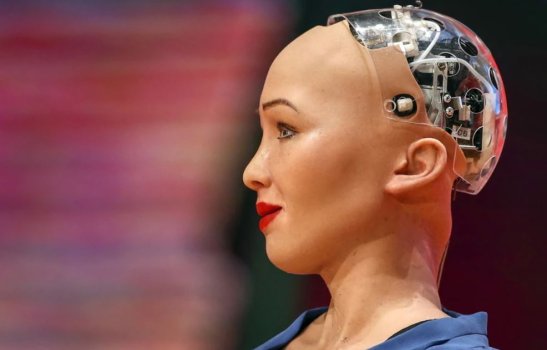Can machines think? This is the opening question of British mathematician Alan Turing’s most famous paperExternal link. Published in 1950, it laid the foundation for the conception and definition of artificial intelligence (AI). To answer his question, Turing invented the “imitation game”, still used today to judge the intelligence of a machine.
The game, which later became known as the Turing Test, involves three players: player A is a man, player B is a woman and player C, who plays the role of the interrogator, is of either gender. The interrogator is unable to see the two other players and poses a series of questions in writing, to determine which player is the man and which is the woman. The purpose of the male respondent is to deceive the interrogator by giving misleading answers, while the woman has to facilitate her correct identification.
Now, imagine player A is replaced by a computer. Turing wrote that if the interrogator is not able to distinguish between a computer and a person, the computer should be considered an intelligent entity, since it would prove to be cognitively similar to a human being.
Seventy years later the results to the test are astounding. “At the moment, there is not a single artificial intelligence system, and I mean not a single one, that has passed the first Turing Test,” says Hervé Bourlard, who directs IdiapExternal link, which specializes in artificial and cognitive intelligence.
Continue reading: https://www.swissinfo.ch/eng/is-artificial-intelligence-really-as-intelligent-as-we-think--/47346680?utm_campaign=teaser-in-querylist&utm_medium=display&utm_source=swissinfoch&utm_content=o
The game, which later became known as the Turing Test, involves three players: player A is a man, player B is a woman and player C, who plays the role of the interrogator, is of either gender. The interrogator is unable to see the two other players and poses a series of questions in writing, to determine which player is the man and which is the woman. The purpose of the male respondent is to deceive the interrogator by giving misleading answers, while the woman has to facilitate her correct identification.
Now, imagine player A is replaced by a computer. Turing wrote that if the interrogator is not able to distinguish between a computer and a person, the computer should be considered an intelligent entity, since it would prove to be cognitively similar to a human being.
Seventy years later the results to the test are astounding. “At the moment, there is not a single artificial intelligence system, and I mean not a single one, that has passed the first Turing Test,” says Hervé Bourlard, who directs IdiapExternal link, which specializes in artificial and cognitive intelligence.
Continue reading: https://www.swissinfo.ch/eng/is-artificial-intelligence-really-as-intelligent-as-we-think--/47346680?utm_campaign=teaser-in-querylist&utm_medium=display&utm_source=swissinfoch&utm_content=o

